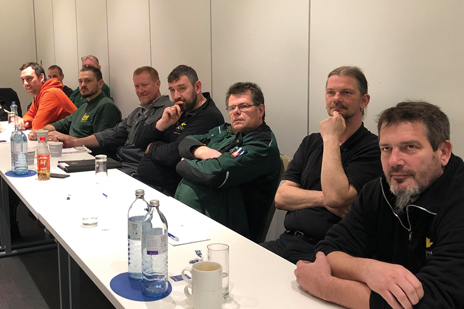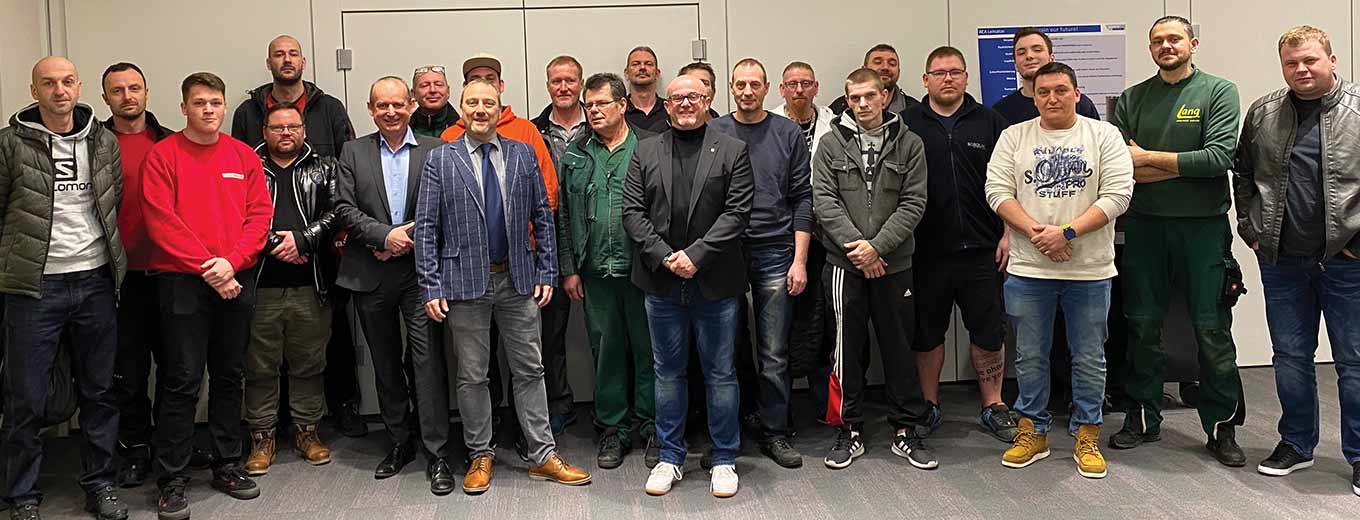Running training sessions for Affiliates is part of the role of FIDI’s most active regional associations. FIDI Focus speaks to FIDI Austria President Hanspeter Rabel about its most recent session for packers, while FIDI Academy’s Chantal Fera takes us through the content of the programme
ON 20 February, FIDI Austria held a special packers’ training session for Affiliates based in the country. Andreas Eibel, Vice- President of FIDI Austria and long-time FIDI Academy trainer, played a key role in the organisation of the event. It was the third such session run by the association, and 20 participants from seven of the 10 FIDI-affiliated businesses in the region took part.
Hanspeter Rabel, President of the regional association, which organises and facilitates the FIDI-developed training, says: ‘Many of our members do not have a lot of staff and the capability to facilitate English-language training. It is easier to do this under the FIDI Austria umbrella and the packers who attend are happy to share their experiences.’
Running training such as this is just one of the important roles of a dynamic FIDI association, says Rabel. ‘FIDI Austria is the platform for all Austrian members to participate in FIDI’s development and, although we are a small organisation, we participate in all FIDI meetings,’ he says. ‘Apart from the packers’ training, FIDI Austria meets before the FIDI Conference – and before the EGA – to discuss our point of view regarding the minutes. Also, FIDI Austria organises small events, such as an informal meeting with employees from all members at the Christmas market, where we support the Lions Club.
‘In an ever-changing environment, it is key to learn in order to adapt. Associations that help their members will always be appreciated. Consequently, membership fees are not an issue, as the value can be seen.’
Active regional associations and their Affiliates help support FIDI and its objectives, adds Rabel. ‘Our members have always sold the FIDI brand to corporate accounts, such as the International Atomic Energy Agency (IAEA) and the Austrian Chamber of Commerce. Some of them now make it mandatory to be FIDI members to participate in tenders and bids.’

The format of the training
Although the training is always available online, without a FIDI trainer, FIDI advises associations or Affiliates to organise a group event to get maximum benefit, says Chantal Fera, of the FIDI Academy.
‘In terms of delivery, we don’t expect each packer to sit in front of a computer and go through the programme on their own,’ she says. ‘Rather, we recommend the trainer responsible to organise a half- or full-day team-building event – in the warehouse or a large meeting room – to go through the programme together, pause for practical exercises (packing), share experiences, and discuss challenges.’
Content
The training has two modules:
Module 1 explains the six risks while packing, loading, transporting, unloading and unpacking, what damage can occur, and how to prevent such damage.
Module 2 is more customer orientated. We often underestimate the impact of the packers’ crew on the client and on company business – it can be disastrous or very beneficial in the long run. We explain why it is important to create a favourable first impression and how to do this. We also explain how packers should behave – from the warehouse until they are back at the warehouse – basic cultural differences, and how to deal with difficult customers and/or unexpected challenges.
Objectives:
This programme provides support for an important segment of your employee base, and will:
- Improve the techniques used for packing, loading and shipping HHG
- Help your company to optimise the use of packing materials, increase the density and lower the claims
- Summarise the crew’s impact within the sales and administrative chain
- Use techniques for managing difficult customers
Topics covered:
- Sources of the six major risks when relocating personal and household effects
- Possible damages
- Items at major risk
- Methods to prevent major risks
- Effectiveness of protective measures
- The client’s perspective
- The client’s expectations on arrival and departure
- Your ability to overcome challenges
- Awareness of etiquette in the client’s home and understanding cultural differences.


